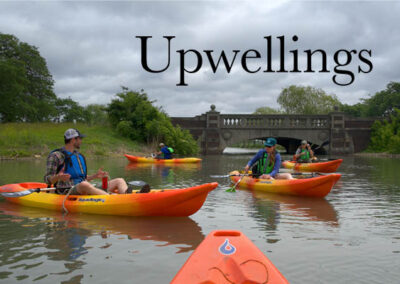 Stewardship. Resilience. Autonomy.
Stewardship. Resilience. Autonomy.
A northern Michigan Ojibwe nation is working with Michigan Sea Grant-supported researchers to create an Indigenous knowledge guidance document to convey the principles that frame their relationships with the land they inhabit and steward.
Michigan’s tribal communities hold a wealth of traditional ecological knowledge, reflecting cultural principles of community, place, respect, and interdependence. Their environmental stewardship approach relies on Anishinaabe-gikendaasowin as well as scientifically sound planning and management.
In the Ojibwe language, Anishinaabe refers to the Ojibwe, Ottawa, and Potawatomi peoples, collectively known as the Three Fires Confederacy (note: some alternative spellings include Ojibwa, Chippewa, Odawa, and Bodewadmi). Gikendaasowin is defined as “knowledge” or “intelligence.” (Click the links to hear the words pronounced as part of the Ojibwe People’s Dictionary.)
The Keweenaw Bay Indian Community (KBIC) is the oldest and second-largest federally recognized Indian Tribe in Michigan, with treaty lands along Lake Superior’s southern shoreline in the Upper Peninsula. KBIC strives to protect natural resources and preserve Ojibwa culture. KBIC seeks a strategy for honoring Anishinaabe-gikendaasowin, and sharing that knowledge with the broader Great Lakes management community to empower integrated action, planning, and research in the region.
With funding from Michigan Sea Grant, a research team at Michigan Technological University (MTU) is partnering with KBIC and the Great Lakes Indian Fish and Wildlife Commission (GLIFWC) to synthesize, honor, and share Indigenous community knowledge about natural resources and environmental science.
Shaping the Guidance Framework

Project lead Valoree Gagnon, assistant professor at the MTU College of Forest Resources and Environmental Science, serves the MTU Great Lakes Research Center as director of university-Indigenous community partnerships.
Gagnon’s project received Michigan Sea Grant (MISG) funding in the 2020-2022 research cycle. The project is an integrated assessment, a research approach focusing on community engagement and synthesis of existing information. The work supports MISG’s strategic plan goals of fostering environmental literacy and strengthening skills and collaboration among Great Lakes natural resources and policy professionals.
Gagnon and her team of MTU researchers, including graduate and undergraduate students, and staff at KBIC and GLIFWC have been hard at work compiling and synthesizing environmental data, interviews, and literature already held by KBIC and tribal partners. As they analyzed this information, a set of guiding themes emerged, shaped around the KBIC community’s existing relationships, priorities, and knowledges:
- KBIC GOVERNANCE is the collective essence of our sovereign people, being flexible and adaptable, including our organizing principles and responsibilities for interacting with one another, other communities, and all our relations and relatives. SELF- DETERMINATION and AUTONOMY is our inherent ability, capacity, and knowledge to govern and take care of our people, homelands, and relations with others, and to self-determine the priorities and practices by which to govern, care for, and relate to others.
- KBIC STEWARDSHIP is being a good relative, which includes living in gratitude and humility, honoring and learning from our relatives – the four-legged and two-legged, swimmers, and winged ones – and sharing our gifts to strengthen and sustain relations with each other and all of creation for the next seven generations.
- KBIC RELATIONS & RELATIVES are our connections to mino bimaadiziwin, listening and learning in all directions, including the seasons and ceremonies, the woodlands, the waters, and the winds, medicines and foods, the fish, wildlife, and our ancestors – and all spirits – of the past, present, and future.
- KBIC RESILIENCE is living in balance with all others, honoring our ancestors and teachings, long-term planning in consideration of all others, and maintaining mashkawendam with and by all others.
The research team worked with the project’s advisory board, the KBIC Cultural Committee, to create each theme’s description and to incorporate them into a guidance document that can help KBIC share their knowledge about natural resources management, governance, and adaptation planning with communities and partners.
The KBIC Cultural Committee approved these themes, which will officially be released when the guidance document is published in early 2023. They will also be part of the conversation at the Indigenous Knowledges Symposium, which the MTU research team is hosting on October 24-25, 2022. The symposium will gather KBIC’s partners at local, regional state, provincial, tribal, federal, and university levels to strengthen the capacity for environmental stewardship and governance in the Great Lakes region.
For more information about the Indigenous Knowledges Symposium or to register to attend, visit: mtu.edu/greatlakes/research-highlights/university-indigenous-community-partnerships.


